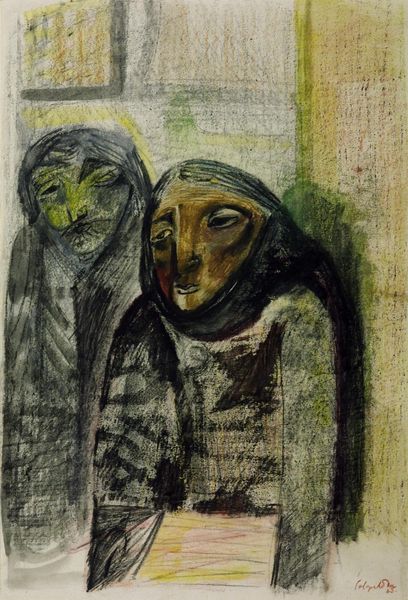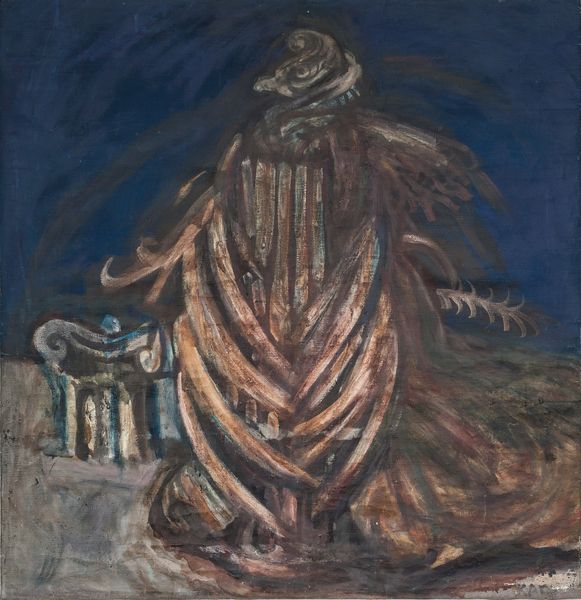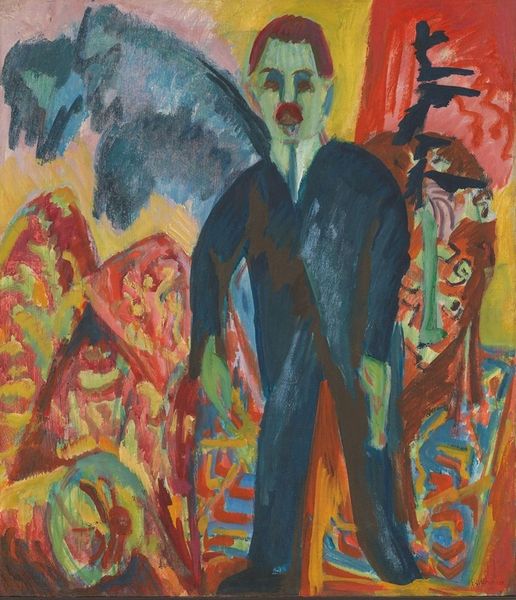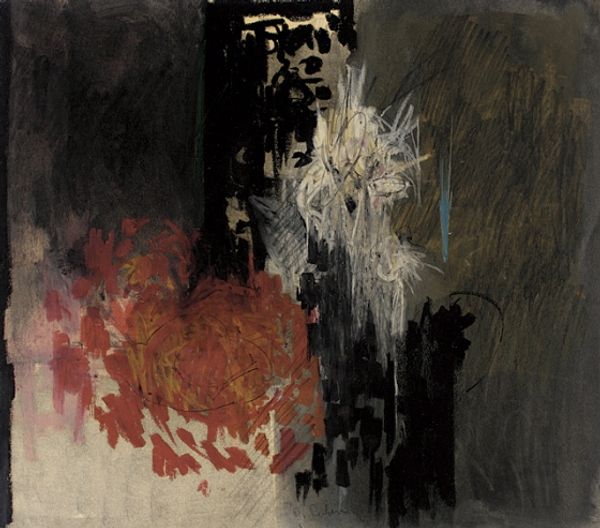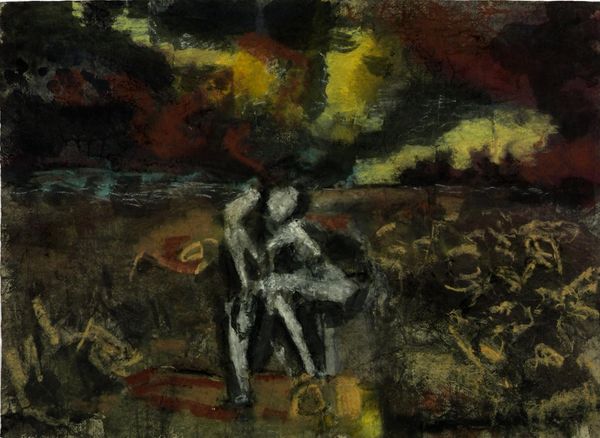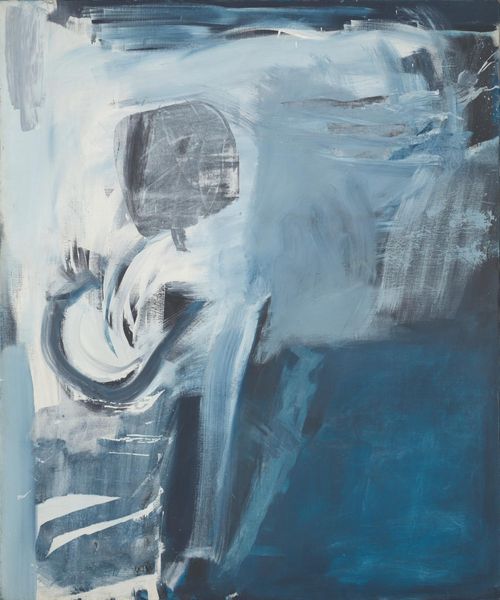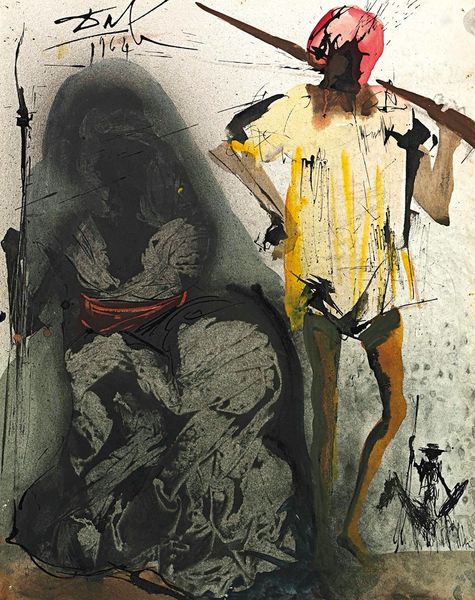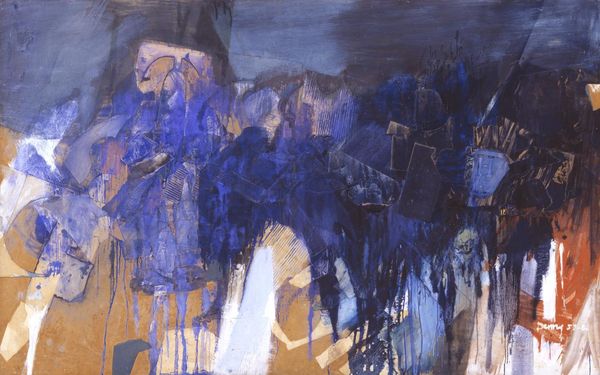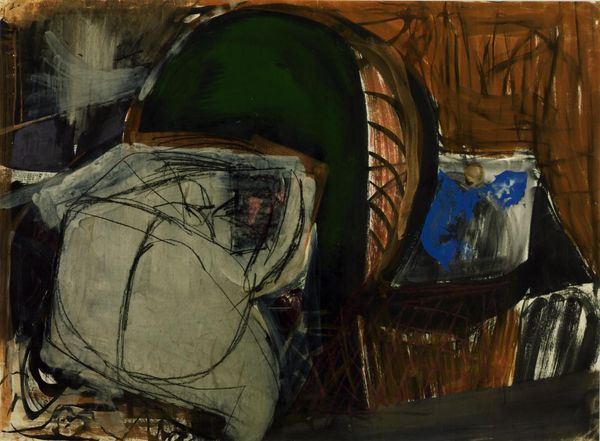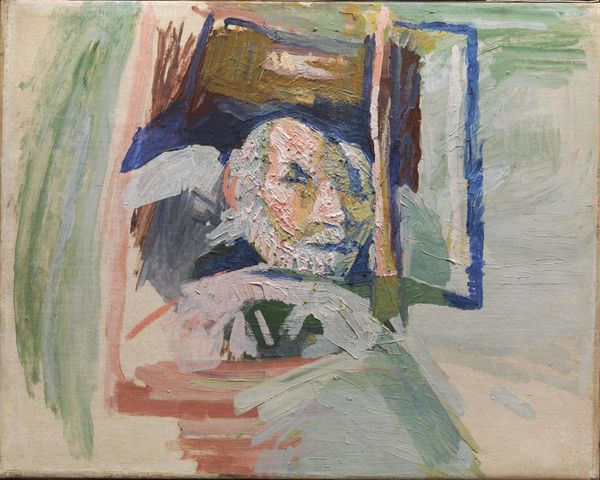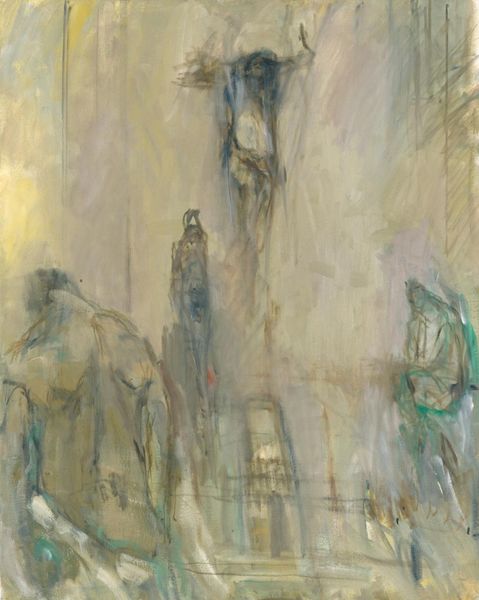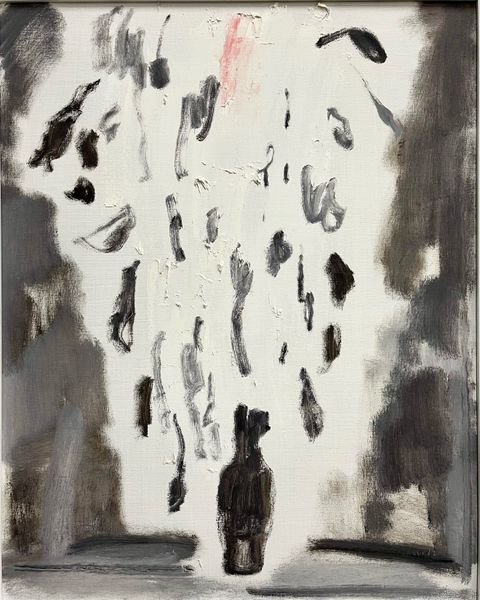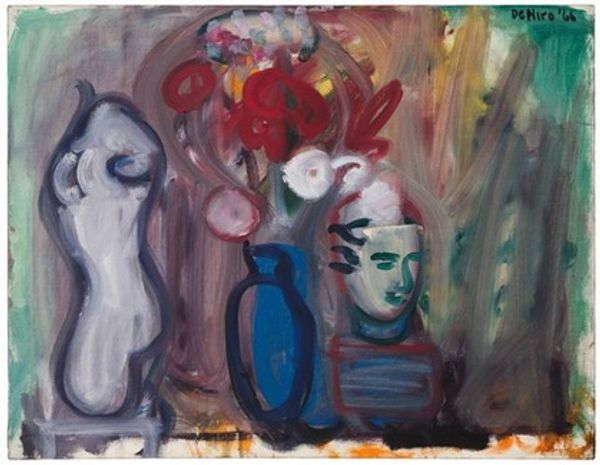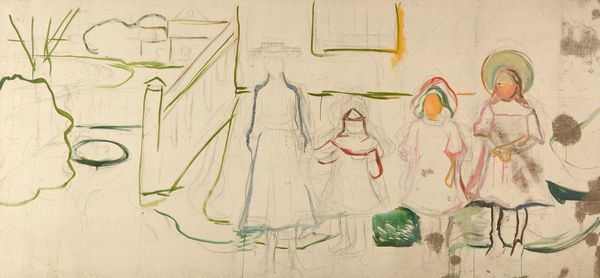
Copyright: Eva Hesse,Fair Use
Editor: This intriguing oil painting is simply titled "Untitled" and was created by Eva Hesse in 1960. There's a somber, almost haunting feeling about it. What cultural narrative do you think Hesse is exploring here? Curator: It's certainly a compelling work. Considering its creation in 1960, we must look at the socio-political landscape and the developing institutional framework of the art world itself. Hesse, as a female artist, was likely facing an art world dominated by male figures. What impact might this societal positioning have had on the development of Hesse’s visual language? Editor: I see. It is interesting to view this artwork as possibly reflecting a personal struggle against the male-dominated culture and her pursuit of breaking free of these traditions by using ghostly representation. Curator: Exactly. How does Hesse's choice to depict figures that seem almost spectral – devoid of traditional facial features and presented with such subdued coloring–challenge existing notions of portraiture at the time? Perhaps this isn’t just a personal reflection. This lack of clarity might represent society’s expectation and constraints towards women as an artist in portrait form. Editor: I hadn’t thought of that. So it could be a deliberate political act against that patriarchal system rather than pure expression of artistic freedom? Curator: The two ideas aren’t necessarily mutually exclusive. The personal and political often intertwine, particularly during periods of social upheaval and change. Do you feel that Hesse's biography had significant implications in this matter? Editor: It is interesting how Hesse’s personal life, and particularly her experiences of displacement during the Holocaust and other early traumas, influenced her work by responding with such a bold emotional charge of the socio-political structures of her time. Curator: Precisely. Understanding Hesse's painting through this lens gives us a better appreciation not just for the painting’s style and artistic context, but of her political perspective to portraiture. Editor: Thanks so much, I now have a deeper comprehension of her historical standing as an artist.
Comments
No comments
Be the first to comment and join the conversation on the ultimate creative platform.
